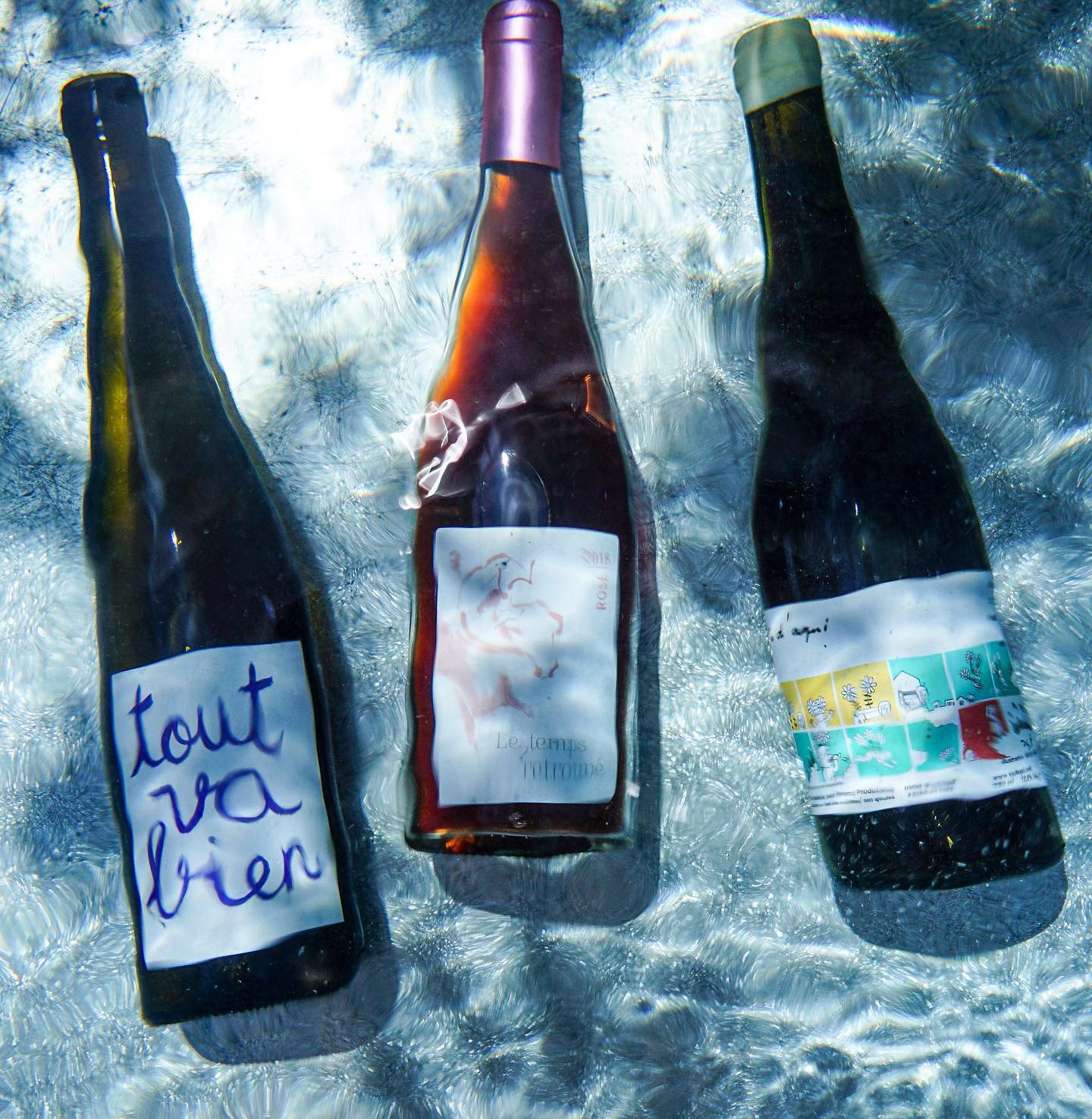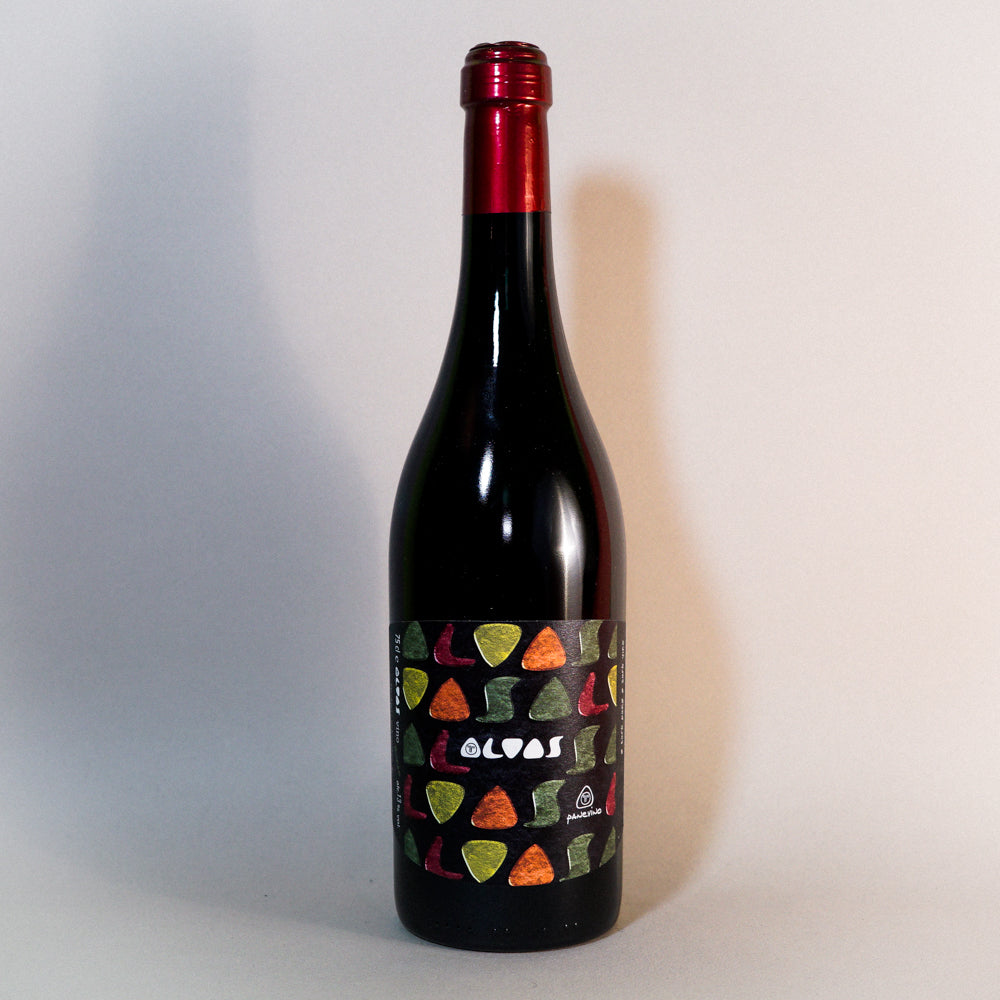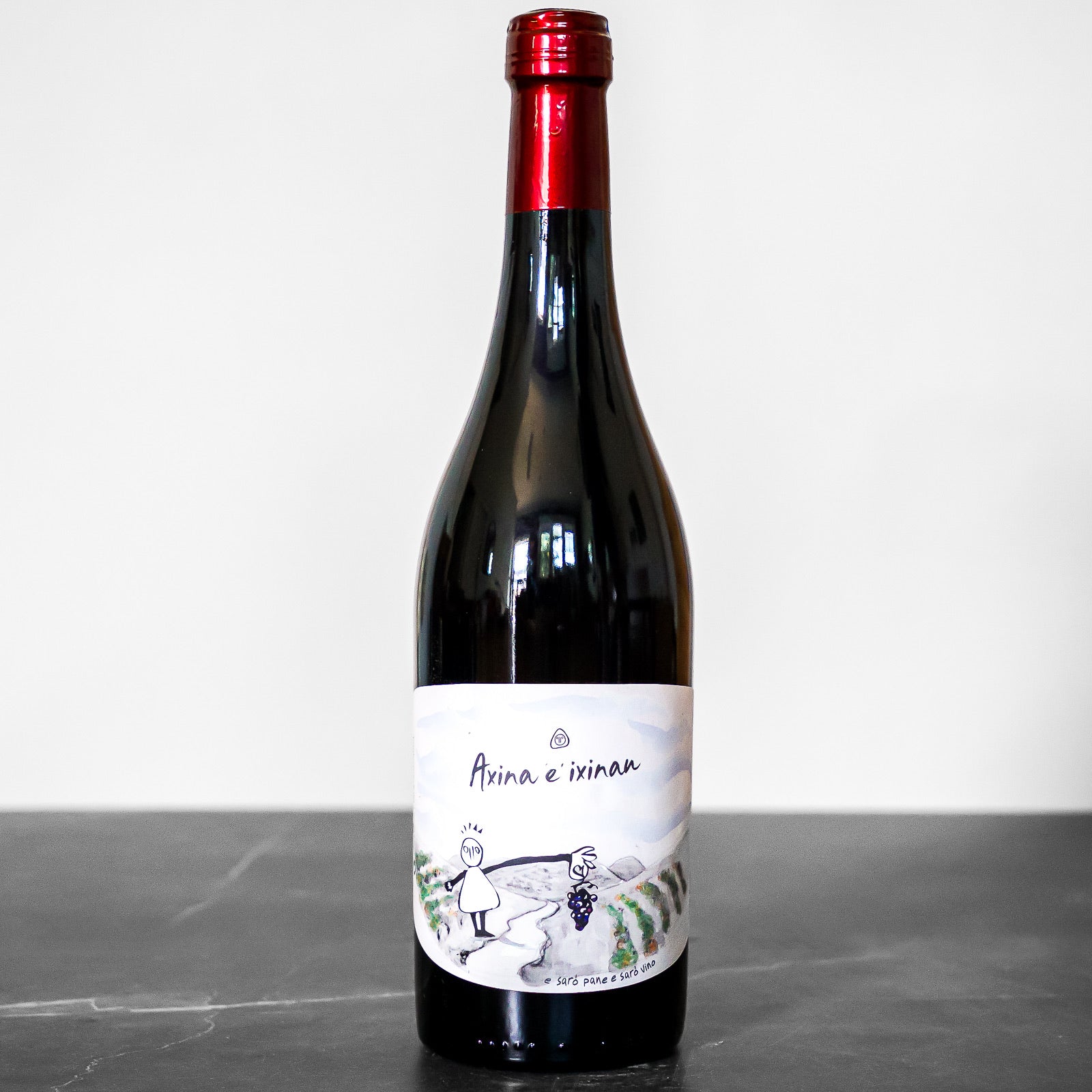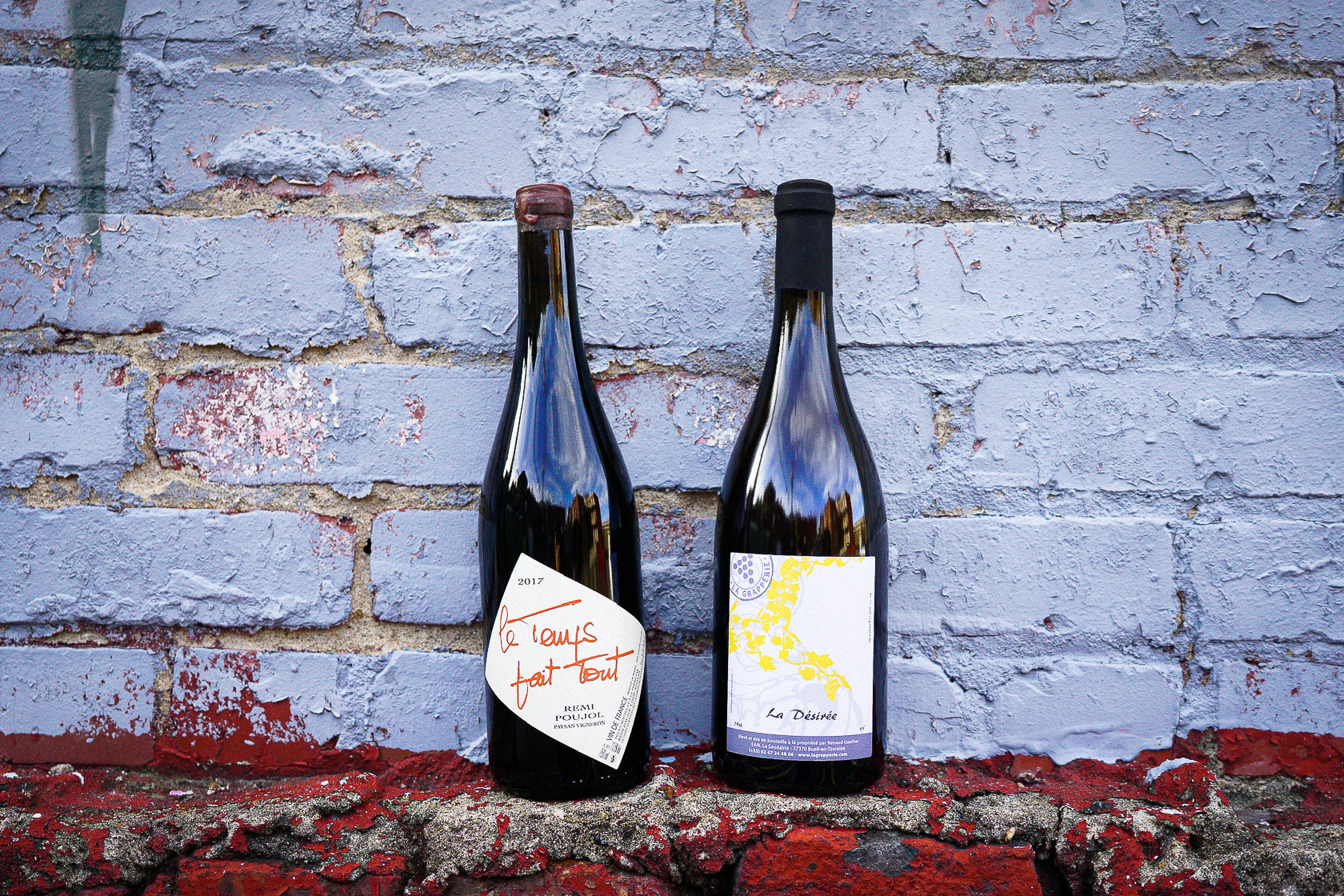The Grenache Noir was harvested on August 31st and the Syrah was harvested on September 2nd. Each variety is whole-cluster fermented separately for 7 days in neutral vats using only the naturally occurring indigenous yeasts. The Grenache Noir was pressed on September 6th and the Syrah was pressed on September 9th. The components were blended on September 9th and transferred to a large neutral vat to complete fermentation. Alcoholic and malolactic fermentation finished on September 22nd.
La Bancale
The Fenouillèdes, is a minor mountain range stretching from Axat in the West to Estagel, a small village outside Perpignan, in the East. Quite literally wedged between the Corbières Mountains and the northern rim of the snowcapped Pyrenees, this is a land of geological and climatic extremes. The blue skies, garrigue covered hills and sheer rocky crests, make for a breathtaking landscape. Undeniably beautiful, it’s easy to forget the difficulties that the arid climate, poor rocky soils, and near constant winds from the Tramontane present to those who work the land. Amidst this dramatic scenery, nestled in the foothills of the Fenouillèdes at the western end of the Agly Valley, is the small village of Saint-Paul-de-Fenouillet. Here in a tiny cellar under their warm and inviting home, Bastien Baillet and Céline Schuers are crafting some of the most unique wines in Southern France.
Transplants from Northern France, Bastien and Céline met as teenagers. Both lovers of nature and of working with their hands, they moved to the Languedoc in their early twenties to study and work in agriculture. Bastien studied viticulture in Montpellier and they both worked at Domaines throughout the Languedoc and the Roussillon. Early on they developed a passion for the native varieties and old bush vine vineyards of Southern France. It was their love of old vine Carignan that led to apprenticeships with Jean-Louis Tribouley and Domaine de l’Ausseil, in the village of Latour-de-France at the eastern end of the Agly Valley. Struck by the incredibly complex terroirs and cooler climate of the Fenouillèdes, Bastien and Céline saw an ideal place to craft balanced, terroir-expressive wines from native grape varieties. They set out to find vineyards of their own and in 2014 purchased just over 1 hectare of old vines.
Bastien and Céline have methodically added small plots of old vines over the past five years and today they farm a little under 5 hectares, spread over multiple parcels in 5 different communes. Nearly all their vineyards are planted to native, 70 plus year old, head trained bush vines. The three exceptions are a little Syrah that is trellised, two plots of Macabeu planted in 1980 and some younger vine Grenache Gris. All vineyards are farmed according to Organic principles, and the Domaine is in the conversion process for Organic certification (ECOCERT). Other than some light tilling by tractor, all work in the vineyards is done by hand. The soils are predominately decomposed granite or black schist and marl. Several of the parcels are co-planted to multiple red and white varieties. Particularly interesting, is an 80-year-old, .20-hectare vineyard planted to Carignan Noir, Grenache Gris, Macabeu, Carignan Gris and Tourbat that is harvested together, co-fermented and bottled as a single vineyard.
The focus at La Bancale is expressing the Domaine’s unique terroirs, and the quality of the Roussillon’s indigenous grape varieties. Bastien and Céline feel this is best accomplished by making wine as naturally as possible, meaning meticulous organic farming and a hands-off approach in the cellar. Apart from minimal sulfur additions, less than 30ppm, there are no enological additions to the wines. Winemaking here is about as low-tech as it gets, with everything from pump overs (by bucket) to bottling done completely by hand. New oak is not used. Vinification and maturation are in stainless-steel tanks or used French oak barrels. Bastien has become very adept at utilizing co-fermentation, and the technique is employed on both whites and reds.
While still quite young, Bastien and Céline show great promise. They have already produced several excellent vintages and demonstrate a level of understanding rare for such young vignerons. When asked about his philosophy and ideas on being a vigneron Bastien has this to say,
“I just really like being a peasant, it’s a hard job but a great job! I like to prune the vines, to care for the vines, to plow the vines, to harvest the vines…the vines are a good place for me.”
This spirit and work ethic are something we look for in all our vignerons but might be best personified by this remarkable young couple. Quite simply, this is a Domaine to watch.
- Terres Blanches Wine Merchants










